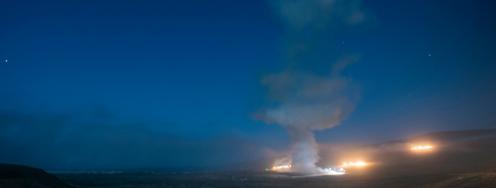Implementing the Iran Deal: Commitments, Verification and Next Steps
On the radar: White House summary of the Iran agreement; Cold, wet and on alert; Gates on sanctions; Partisan push for sanctions; Nukes in the omnibus; and Caution and patience with Iran.
On the radar: White House summary of the Iran agreement; Cold, wet and on alert; Gates on sanctions; Partisan push for sanctions; Nukes in the omnibus; and Caution and patience with Iran.
January 17, 2014 | Edited by Geoff Wilson and Benjamin Loehrke
Implementing the deal - “The White House on Thursday released a summary of the deal reached between six major world powers and Iran to curb its nuclear program, responding to calls from the U.S. Congress and other groups for more transparency about what the agreement entails,” report Roberta Rampton and Patricia Zengerle for Reuters. The full implementation agreement is classified, but being shared with members of Congress. http://reut.rs/1mgPhfQ
The summary - “The Joint Plan of Action marks the first time in nearly a decade that the Islamic Republic of Iran has agreed to specific actions that stop the advance of its nuclear program, roll back key aspects of the program, and include unprecedented access for international inspectors,” says the White House in its summary of the implementation agreement. Read on for a point-by-point list of the actions to be taken by Iran, the IAEA, the US and others once the deal takes effect on January 20th. http://1.usa.gov/Lmgujd
--”With this implementation plan, we have made concrete progress. We will now focus on the critical work of pursuing a comprehensive resolution that addresses our concerns over Iran’s nuclear program. Shortly after the Joint Plan of Action takes effect on January 20th, the United States will determine with our P5+1 partners our approach to the comprehensive solution.”
Thankless job - “Working in the U.S. nuclear-tipped missile force, a job that seemed vital to the country’s security during the Cold War, is an increasingly thankless and dispiriting task, as a new scandal this week has made clear,” reports Jeffrey Smith.
--“If the practice continues to be that the troops compensate for manpower and skill shortfalls, operate in inferior facilities, and perform with failing support equipment, there is high risk of failure to meet the demands” of the nuclear mission, according to a DoD report. Such factors might explain the undesirability of the ICBM mission and the scandals plaguing the force today. Full report at The Center for Public Integrity. http://bit.ly/Knsdg8
Timeline - “U.S. nuclear weapons: Military nuke officers beset by recent scandals” from CNN. http://cnn.it/1i62qb8
Incentivize it - “U.S. Defense Secretary Chuck Hagel is willing to consider offering additional incentives to bolster America's nuclear missile force, the Pentagon said on Thursday, as an exam cheating scandal raises questions about trouble within its ranks,” Reuters reports. “It was only the latest incident involving America's nuclear missile officers, some of whom are also wrapped up in a separate Air Force probe over illegal drug possession.” Full story here. http://reut.rs/Lqm7gg
Quote - “I think that the president's opposition to a bill that would impose additional sanctions now is absolutely right...To vote additional sanctions today would be I think a deal-killer,” said former Secretary of Defense Robert Gates about the latest Iran sanctions legislation. AFP has the quote. http://bit.ly/1i5HocL
IAEA visits - “U.N. nuclear inspectors will soon visit an Iranian uranium mine for the first time since 2005 as part of Tehran's agreement to open its disputed nuclear program to greater scrutiny,” Reuters reports. “Iran and the IAEA struck a cooperation pact in November entailing six initial steps to be taken by Tehran over the following three months including provision of access to two nuclear-related facilities and relevant information.” Full story here. http://reut.rs/1b2YiEX
Sanctions next moves - “House shelves plans for vote on Iran sanctions,” by Julian Pecquet for The Hill. http://bit.ly/1avYzzF
--“Republicans vow new Iran sanctions push,” also by Julian Pecquet for The Hill. http://bit.ly/1atFi1I
Bird’s eye view - New satellite images of the “Hermit Kingdom” provide remarkable insight into North Korea’s growing nuclear program. “From research and development facilities to nuclear and missile test sites to plutonium production and uranium enrichment facilities, North Korea's WMD programs demonstrate a five-decade-long, multibillion-dollar commitment comparable to the Manhattan Project.” Read the full article from Joel S. Wit and Jenny Town of Foreign Policy here. http://atfp.co/1dhum7l
Analysis - “U.S. Strategy and Added Sanctions on Iran: The Role of the Administration and Congress in a ‘Good Cop, Bad Cop’ Approach” by Anthony Cordesman of CSIS. http://bit.ly/1dXAeQF
Winners & losers - “A close read of the omnibus bill for fiscal 2014 appropriations shows that while the U.S. nonproliferation budget remains down from fiscal 2013 levels, some efforts to lock down dangerous nuclear materials actually could receive more funding than expected,” writes Douglas P. Guarino for Global Security Newswire. “And while nuclear-weapons spending overall is on the rise, the bill would cut back some of the more controversial initiatives to modernize atomic warheads in the U.S. arsenal.”
--“The National Nuclear Security Administration's Global Threat Reduction Initiative -- which aims to lock down dangerous nuclear materials and wean foreign reactors off of bomb-grade uranium -- would receive $442 million under the omnibus bill -- $18 million less than Congress appropriated in fiscal 2013, but $17 million more than the administration requested.” Meanwhile, “The semiautonomous Energy Department agency's international materials protection and cooperation activities would receive $419 million -- $50 million more than the Obama administration requested. These activities include the Second Line of Defense program, which installs radiation-detection equipment at foreign border crossings, seaports and airports.”
--“Nuclear-weapons activities, meanwhile, would receive an overall boost under the omnibus bill. NNSA weapons activities would get a total of $7.8 billion, $874 million more than Congress allotted in fiscal 2013.” But “while the omnibus bill would fully fund NNSA work on extending the life of B-61 gravity bombs stationed in Europe… the bill [will] not allocate $10 million that the Pentagon had requested to assess furnishing the F-35A joint strike fighter with the capability to drop the B-61 bombs.” Read the full analysis here. http://bit.ly/1b835RE
Omnibus - “FY 2014 Omnibus Appropriations Summary and Analysis” by Kingston Reif, Laicie Heeley and John Isaacs of the Center for Arms Control and Non-proliferation. (pdf) http://bit.ly/1eWTUq9
Patience and perspective - “As negotiations between the international community and Iran head into a deeper phase, with the prospect of a deal that could verifiably block Iran from acquiring a nuclear weapon, we as Americans have to ask, will we be as patient now as the Israelis were when they negotiated peace with Egypt?” asks by Joel Rubin in a column for The Pittsburgh Jewish Chronicle. http://bit.ly/1kGHfyj
A word of caution - “Thirty-five years ago, when the Iranian revolution overthrew the shah and our diplomats were taken hostage, I was in the White House. Many of those taken prisoner remain personal friends of mine,” writes Gary Sick in a piece for USA Today. “With this experience, it is difficult to watch the foreign policy calamity taking shape in Washington. A combination of domestic politics and misguided intrusion is on track to derail an enormous opportunity to halt Iran's nuclear program. At worst, it could be setting us on the path to a third major Middle East war.”
--“Today we are at the most hopeful moment of the past three decades. A final agreement has yet to be negotiated, and there are certain to be ups and downs. Even so, we have a real chance to cap Iran's nuclear development and establish iron-clad measures to guarantee that it will not be used for military purposes. By contrast, the Senate [sanctions] bill attempts to inject the Congress into a delicate international negotiation. That only risks derailing efforts to find a peaceful solution, bringing us closer to another war in the Middle East.” Full article here. http://usat.ly/1eWGsmb
Events:
--”What Will 2014 Bring for North Korea’s Nuclear Program?” Discussion with James Schoff, Toby Dalton, Go Myong-Hyun, Choi Kang, Park Jiyoung, and Shin Chang-Hoon. Jan. 21st from 9:00-12:00 at Carnegie Endowment for International Peace. RSVP here. http://ceip.org/1lIxXQo
--”Making Sense of Nuclear Negotiations with Iran: A Good Deal or a Bad Deal?” Discussion with Alireza Nader, Daryl Kimball and Paul Pillar. Jan. 22nd from 10:00-11:00am at 2168 Rayburn House Office Building. RSVP here. http://bit.ly/19Th8zR
--”Resolved: The United States Should Modernize Only One Leg of the Nuclear Triad.” Debate with Christopher Preble and Elbridge Colby. Jan. 27th from 6:00-8:00 at the Center for Strategic and International Studies. RSVP here. http://bit.ly/L7utt2
Dessert:
Tweet - @dandrezner: A facilitator for Rodman's DPRK trips is "a professor of neuroscience at Columbia University with a degree in tuba." http://bit.ly/1b2HcHf



